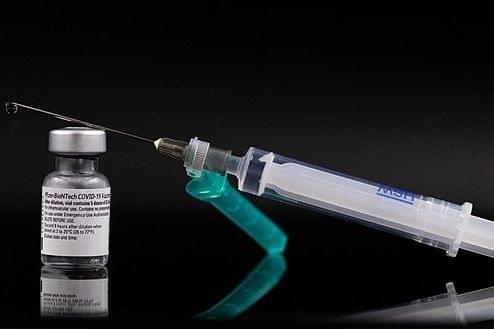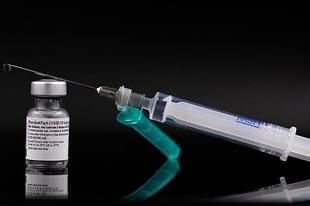News Brief
After Pfizer CEO, German Expert Suggests The Necessity Of A 3rd Vaccine Shot: Do We Really Need It?
Bhaswati Guha Majumder
May 17, 2021, 06:46 PM | Updated 06:46 PM IST
Save & read from anywhere!
Bookmark stories for easy access on any device or the Swarajya app.


After the CEO of American pharmaceutical company Pfizer, Albert Bourla said people would need a third dose of Covid-19 vaccine within 12 months, a German expert also echoed a similar suggestion.
In early April, Bourla told CNBC: “A likely scenario is that there will be likely a need for a third dose, somewhere between six and 12 months and then from there, there will be annual revaccination, but all of that needs to be confirmed. And again, the variants will play a key role.”
Recently, the head of Germany’s independent vaccine advisory panel, Thomas Mertens stated that it is likely that people will have to get a Covid-19 jab again next year.
According to Mertens, as of now, there is no enough data to confirm the timeline of booster shots.
He also noted that the officials will have to wait a few more months to see whether protection against the coronavirus weakens in some groups.
But Mertens, who is a virologist and the chairman of the Standing Committee on Vaccination (STIKO) at the Robert Koch Institute in Berlin, told Funke newspaper that since the novel coronavirus “won’t leave us”, the vaccinations currently underway would not be the last.
“In principle, we have to prepare for everyone possibly having to refresh their vaccine protection next year,” he added.
According to reports, the European Union has agreed to extend the vaccine contract with Pfizer-BioNTech for around 1.8 billion doses to be delivered in 2021-23.
The United Kingdom and Israel have already ordered new supplies of vaccines to deploy as protective boosters.
But some experts question the need for Covid-19 booster shots.
Do We Need It Or Not?
Over a dozen influential infectious disease and vaccine development experts told Reuters that there is evidence that suggests that the first round of global vaccinations may offer enduring protection against the Covid-19 and its most concerning variants detected so far.
According to some of these experts, the concern is that the public expectations around the booster shots are being set by pharmaceutical executives rather than healthcare specialists.
But many of the scientists also agreed to the fact that preparing for such a need as a precaution is also prudent.
They fear that an early push for boosters as early as this year by the rich countries would deepen the divide with poorer nations, which are currently struggling to get vaccines for their population.
Kate O'Brien, director of the Department of Immunization, Vaccines and Biologicals at the World Health Organization (WHO) also said that the UN agency hasn’t yet seen any data about the necessity of booster jabs.
According to her, the WHO is now forming a panel of experts that will assess all the variants and vaccine efficacy details to recommend changes to the vaccination programs if required.
After Pfizer CEO suggested the necessity of a booster shot, Dr Tom Frieden, who is the former director of the Centers for Disease Control and Prevention (CDC) in the United States said: "There is zero, and I mean zero, evidence to suggest that that is the case."
Frieden, who now leads the global public health initiative Resolve added that it is completely inappropriate to recommend an annual booster “because we have no idea what the likelihood of that is”.
Responding to the criticism, Pfizer said that the recommendation is based on the current scenario when the virus is still circulating and it could change once the pandemic comes under control.
Earlier this month, Dr. William Gruber, who is Pfizer's senior vice president of vaccine clinical research and development, said that the prediction for yearly boosters was based on "a little evidence" of reduction of immunity over those six months.
However, some health experts, including Richard Hatchett, who is the chief executive of the Coalition for Epidemic Preparedness Innovations (CEPI) said that vaccine developers are right to plan for booster shots given the uncertainty over what will be needed in the future.
The government authorities can then decide whether to buy the vaccines or not, he suggested.
Some studies showed mutant versions of SARS-CoV-2 might evade protection offered by vaccines.
It was found that the South African variant could produce six to eight-fold reductions in antibody levels among people who got Pfizer or Moderna vaccines.
Some clinical trial data also suggested that Oxford-AstraZeneca, Johnson & Johnson and Novavax vaccines were less effective at preventing infections in South Africa, where the variant is widespread.
These findings spurred the vaccine makers to start testing booster doses.
But Dr. Monica Gandhi, who is an infectious disease doctor at the University of California, believes that the decisions on whether boosters will be needed or not should be made by public health experts, instead of CEOs of a company who may benefit financially.





